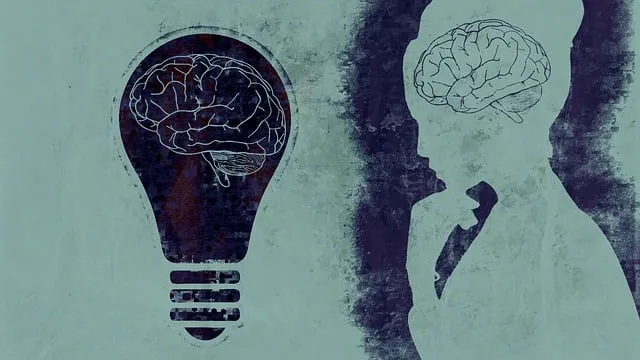Kaiser Permanente's training programs in Highlands Ranch prioritize risk assessment for patient safety and quality care, integrating mental health education and cultural competency. Their curriculum includes programs focused on stigma reduction, emotional healing, stress reduction, and harm minimization, empowering medical professionals to provide holistic care. Through interactive workshops and scenarios, participants learn empathy building, stress management, and emotional healing processes, fostering a culture of proactive harm minimization. These programs promote continuous improvement by reviewing and updating safety strategies based on KPIs, focusing on staff well-being and patient outcomes, driving long-term operational success.
“Risk assessment and harm minimization planning are critical components of any safety-focused organization, particularly in healthcare settings. This article explores these essential practices, drawing insights from Kaiser Permanente’s pioneering efforts at their Highlands Ranch facility. We delve into the foundational role of understanding risk assessment, their comprehensive training programs, and the key elements of effective harm minimization strategies. Additionally, we examine real-world implementation and continuous improvement techniques, offering valuable lessons for organizations aiming to enhance patient safety.”
- Understanding Risk Assessment: A Foundation for Safety
- Kaiser Permanente Highlands Ranch: Leading the Way in Training
- Key Components of Effective Harm Minimization Planning
- Implementing Strategies: From Training to Action
- Continuous Improvement and Monitoring: Ensuring Long-Term Success
Understanding Risk Assessment: A Foundation for Safety

Risk assessment is a fundamental process within healthcare operations, especially for organizations like Kaiser Permanente training programs in Highlands Ranch. It involves identifying potential hazards and evaluating their likelihood and impact to facilitate informed decision-making and proactive harm minimization. By systematically analyzing risks, healthcare providers can ensure patient safety and enhance the overall quality of care. This foundational step is crucial for addressing various challenges, from clinical errors to environmental hazards, ensuring resilience building within healthcare systems.
The Kaiser Permanente training programs in Highlands Ranch prioritize mental health education programs design as part of their risk assessment strategy. They also emphasize healthcare provider cultural competency training, recognizing that understanding diverse patient populations and their unique needs contributes to better risk management. Such proactive measures not only strengthen patient outcomes but also foster a culture of continuous improvement, where learning from potential risks is encouraged, allowing for sustained excellence in healthcare delivery.
Kaiser Permanente Highlands Ranch: Leading the Way in Training

Kaiser Permanente Highlands Ranch stands as a beacon of excellence in healthcare training programs. The organization prioritizes comprehensive risk assessment and harm minimization planning, setting a benchmark for industry standards. Through innovative approaches, they equip their medical professionals with advanced skills to manage diverse patient scenarios.
Focusing on both physical and emotional well-being, Kaiser Permanente’s training initiatives include comprehensive programs addressing Mental Illness Stigma Reduction Efforts and Emotional Healing Processes. By integrating Stress Reduction Methods into their curriculum, they empower healthcare providers to offer holistic care, ensuring patients receive not just physical treatment but also the support needed for mental and emotional resilience.
Key Components of Effective Harm Minimization Planning

Effective harm minimization planning involves a multi-faceted approach that goes beyond mere risk assessment. Key components include comprehensive risk identification, where potential hazards are meticulously cataloged and prioritized based on their likelihood and potential impact. This process is facilitated by evidence-based tools and methodologies, often honed through Kaiser Permanente training programs in Highlands Ranch, which have proven effective in various healthcare settings.
The planning stage further includes developing strategic interventions and mitigation strategies tailored to identified risks. This requires a holistic view, considering not just physical dangers but also psychological and social factors. Mental Health Awareness plays a crucial role here, as it empowers individuals and communities with the knowledge and tools to navigate potential harm. Moreover, successful implementation of these plans often hinges on Community Outreach Program Integration, fostering collaboration between various stakeholders to ensure a coordinated response that boosts confidence in safety measures.
Implementing Strategies: From Training to Action

Implementing strategies for risk assessment and harm minimization goes beyond theoretical knowledge; it requires practical application. Kaiser Permanente training programs in Highlands Ranch offer a comprehensive approach, equipping individuals with the skills to identify potential risks and proactively mitigate them. These programs emphasize the importance of empathy building strategies, stress management techniques, and emotional healing processes, ensuring that participants are not just trained but also prepared to handle challenging situations effectively.
Through interactive workshops and real-life scenario simulations, the training programs foster a culture of proactive harm minimization. Participants learn to anticipate risks, implement preventive measures, and respond swiftly when faced with potential harm. By integrating these strategies into daily practices, individuals become agents of positive change, contributing to a safer and more supportive environment, whether in healthcare settings or other professions.
Continuous Improvement and Monitoring: Ensuring Long-Term Success

Continuous improvement is a cornerstone of successful risk assessment and harm minimization planning. Organizations like Kaiser Permanente training programs in Highlands Ranch emphasize this ongoing process to adapt to evolving challenges and trends in healthcare. By regularly reviewing and updating strategies, facilities can ensure they remain at the forefront of safety measures. This proactive approach involves closely monitoring key performance indicators (KPIs) related to patient outcomes, staff well-being, and adherence to protocols.
The feedback loop created through continuous improvement empowers healthcare providers to identify areas needing attention, implement effective interventions, and measure their impact. Incorporating self-care practices, depression prevention initiatives, and stress reduction methods into the monitoring process not only benefits individual practitioners but also contributes to a healthier organizational culture. This holistic perspective fosters an environment where harm minimization is everyone’s responsibility, ultimately leading to enhanced patient care and long-term operational success.
Risk assessment and harm minimization planning are paramount in ensuring patient safety. As highlighted by Kaiser Permanente’s pioneering training programs in Highlands Ranch, comprehensive training is a cornerstone of effective risk management. By integrating these strategies into healthcare operations, institutions can proactively identify and mitigate risks, ultimately enhancing patient care and outcomes. Continuous improvement and monitoring are essential to sustain these efforts over time, making it a collective responsibility to uphold the highest standards of safety.






